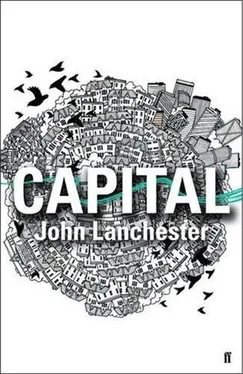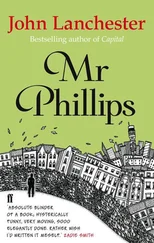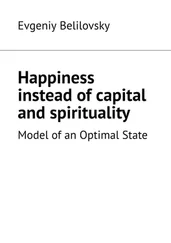All the internees said that it was an important moment when you had grown used to the food. Some said this was a bad moment, a sign that you had been there too long; others said it was a good moment, a sign that you had become philosophical about your fate. People did not stop complaining about the food when they passed through this moment but they did not complain in the same angry way; they were more resigned, and the big change was that they now ate. For Quentina, the moment came with a jelly. She had been eating nothing but bread and fruit for about a month and was feeling gassy, bloated and unhealthy, and then she saw this jelly. It was red and had pieces of fruit in it. It was the fruit which convinced her. It wasn’t that the jelly looked especially tempting; but it did look edible. She ate it: it was sweet. It tasted like jelly. She managed to get it down. The moment of defeat or of acceptance had occurred. There was a sense of psychological discomfort when she swallowed the first mouthful but after that it was OK.
Quentina had found a mental trick to help herself to get through her days in the detention centre. It was simple in its way. All she did was say to herself, over and over, whenever the need or occasion arose, the same words: this will not last for ever: this is the hardest thing you will ever do. This will not last for ever: this is the hardest thing you will ever do. She found herself saying it after she woke up in the morning and had a few seconds of not knowing where she was – and sometimes, in the happiest version of those seconds, she was back at home with her mother and father in their bedroom, except the door wasn’t where it should be, and the window was on the wrong side of the bed, and there was something strange about the light, and then she would come fully awake to the reality of the detention centre, England, internment, statelessness, being a non-person in a non-place waiting her way through non-time.
These things were not harder than each other. They were all equally hard. It was very difficult being in the same place as the hunger strikers. Some of the first hunger strikers had given up, one or two of them, in particular a Kurdish woman with two children whose husband had been killed by Saddam, coming right to the very edge of death, her eyes huge and their irises a strange grey colour, bizarre against the sallow near-yellow of her slack but stretched skin. If it hadn’t been for her children she would have starved herself to death, Quentina was sure; in the event she went too close to the edge, had kidney failure and nearly died anyway. Others had joined the hunger strike, so there were different internees at different stages of this war of nerves with the authorities. It was like the boys’ game of chicken – except that it wasn’t like a game at all.
One of the hardest things for Quentina was the sheer blankness of passing time. That was, after all, what had driven her to get the job as a traffic warden in the first place, the incredible temptation of having something to do, combined with the chance to earn a little spending money. Here, though, she found herself wondering why people were so agitated about the restoration of the 71p daily allowance. It wasn’t that the sum was so small, it was that there was nothing to spend it on. Visitors were allowed, but they weren’t allowed to bring anything in. There were charities which arranged visits so that internees had some point of contact with the outside world – for some internees these were the only British people they had ever spoken to who were not agents of the state. But Quentina couldn’t be bothered with that. She didn’t want to make small talk with a stranger and she even less wanted to complain to someone who had nothing to offer but sympathy. Makela the Nigerian doctor urged her to sign up for friends’ visits, as they were called, but Quentina resisted.
‘You’re making a mistake,’ said Makela, the kind of person who prided herself on her own frankness. ‘You’re turning in on yourself. I’ve seen it happen before.’
‘I thank you for your advice,’ said Quentina, and Makela knew enough to stop there.
There was a small library, mainly put together by donations from charities, presided over by one of the warders and by an Egyptian intellectual whose husband had been tortured in prison. The warder and the inmate got on well, the only instance of any such relationship in the internment centre. Quentina took out some books and tried to read, but this was yet another activity whose point she couldn’t see. The non-fiction stories were too boring or too depressing – a history of the International Monetary Fund, a book about a young woman suffering abuse from her stepfather – and the fiction suffered from an irredeemable fault: it was all made up. Quentina couldn’t, in her current frame of mind, see the point of anything that was made up. Makela said that books helped her to escape, but that didn’t make any sense. A book couldn’t get you out of the detention centre, or land like a helicopter and carry you off, or magically turn into a UK passport which gave you the right of residency. Escape was very precisely, very specifically what a book couldn’t help you do. Not in any literal sense. And the literal sense of escape was the only one that interested Quentina.
The one thing that did help was doing shifts in the crèche. It wasn’t that Quentina had any special liking for children, or special gift for them, or they a special liking for her. But it was, in a basic and straightforward way, something to do. She would help out for three hours in the morning on every second day – that was all the opportunity there was, because people were so desperate for activity that the competition for places to work in the crèche was ferocious, and there was a waiting list: Quentina only won her start when a detainee was sent back to Jordan. She helped set up little play zones, tidied up bricks of Duplo, refereed at the small sandpit and indoor dollhouse, and sat in story corner to read stories to any child who would listen. Those nine hours a week, ten to one on Monday, Wednesday, Friday, went past quicker than any other hours – which only made the rest of the time seem slower, heavier, like glue.
It might have been enough to break her, and without one crucial ingredient, it probably would have been. But Quentina had a secret weapon: she knew things could not be like this for ever. The tyrant could not live for ever. In Quentina’s view, the rumours that he had syphilis were true, and explained his descent from tribal partisanship to outright evil; even if he didn’t die, he was old and getting older, his country was desperate and getting more so, and he was going to die or be deposed one day, perhaps one day soon. When the tyrant goes, everything changes. Quentina had promised herself that the very day she heard news of that she would volunteer for deportation. She would go home. And it was that thought which kept her sane, and kept her functioning, in this no-time, no-place, which was designed to be, and succeeded in being, unbearable. This is the hardest thing I will ever do. But this will not last for ever.
‘You do not have to say anything,’ said DI Mill, ‘but if you do say anything it may be taken down and used in evidence against you. It may harm your defence if you do not mention anything on which you later come to rely in court.’
It was difficult to get through the formal warning. The young man Mill was talking to was weeping uncontrollably. It was less like arresting someone and more like telling someone they’d been bereaved. If you’re this upset, thought the DI, why the hell did you do it in the first place?
With another part of his mind, he knew the answer. Mill’s experience was that while it was true that some people wanted to be caught, there was another category, less well known, of people who wanted to have been caught. In other words they did not go out of their way to be nicked, but once they had been, they went to pieces with guilt and relief. This looked like being one of those. Mill took out a packet of paper tissues and, catching the eye of his DC who was sitting next to him with his notebook out, handed them over to the suspect. Mill said, ‘There, there.’ The man took out a tissue, blew his nose loudly and at length, then looked around for a bin, couldn’t see one – even though this was his own flat – and dropped the tissue on the floor.
Читать дальше












